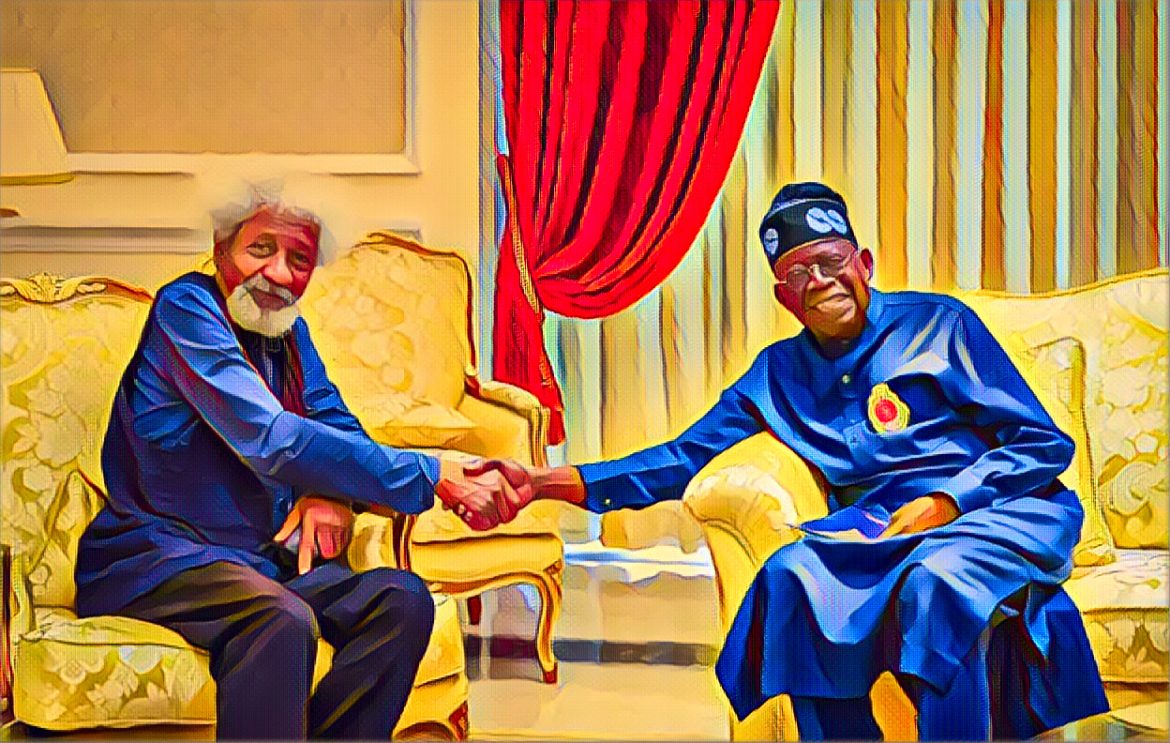President Bola Tinubu announced the renaming of the National Theatre in Iganmu, Surulere, to the Wole Soyinka Centre for Culture and the Creative Arts, as a tribute to the literary figure. This honor comes as Wole Soyinka, an advocate of literary and civil rights achievements, celebrates his 90th birthday.
Soyinka, who etched his name into history books in 1986 by becoming the first African to win the Nobel Prize in Literature, has been described by President Tinubu as a “national treasure and a global icon.” The renaming ceremony marks not just a celebration of Soyinka’s literary prowess but also his vigorous advocacy for human rights and his unyielding voice against oppression.
President Tinubu, in a heartfelt testament, expressed his admiration and respect for Soyinka, stating that the accolades he receives are well-deserved. Soyinka’s survival and victory over prostate cancer further symbolize his resilience and enduring spirit, which have been central to his personal and professional life.
The decision to rename the National Theatre was made public just ahead of a series of local and international events celebrating Soyinka’s contributions to culture and humanity. Notably, a symposium along with a poetry reading was organized in his honor on July 9 in Rabat, Morocco, by the Academy of the Kingdom of Morocco and the Pan African Writers Association (PAWA).
The President emphasized the importance of celebrating such a pivotal figure while he is still present to witness the recognition of his lifelong contributions to literature and society. Tinubu highlighted that this celebration extends beyond Soyinka’s literary achievements. It is also a recognition of his steadfast commitment to the values of human dignity and justice, which he has championed tirelessly.
Soyinka’s literary journey is marked by a blend of creativity and activism. His works, including plays like “The Lion and the Jewel” and “Death and the King’s Horseman,” are not only celebrated for their artistic merit but also for their deep engagement with societal issues. His narratives often weave tales of cultural identity, justice, and resistance against corruption and oppression.
The President recalled moments from Soyinka’s youth when he risked his life for the nation’s peace during the Nigerian civil war in 1967, leading to his two-year imprisonment, which he vividly narrates in his memoir “The Man Died.” These experiences molded Soyinka’s resolve to use his voice and writings to challenge unjust systems and advocate for the marginalized.
Further reflecting on their shared past, President Tinubu noted Soyinka’s critical role in the democratic struggles of Nigeria, particularly following the controversial annulment of the June 12, 1993, presidential election. Soyinka’s efforts in mobilizing opposition against military rule from abroad significantly shaped the political situation of Nigeria.
As Tinubu extended his birthday wishes to Soyinka, he expressed hope that the laureate would continue to inspire and influence not only the current generation but also future generations to strive for a society free from oppression. The renaming of the National Theatre as the Wole Soyinka Centre for Culture and the Creative Arts stands as a symbol of national pride and cultural heritage, aimed at fostering an environment where artistic expression and social justice dialogue can flourish.


